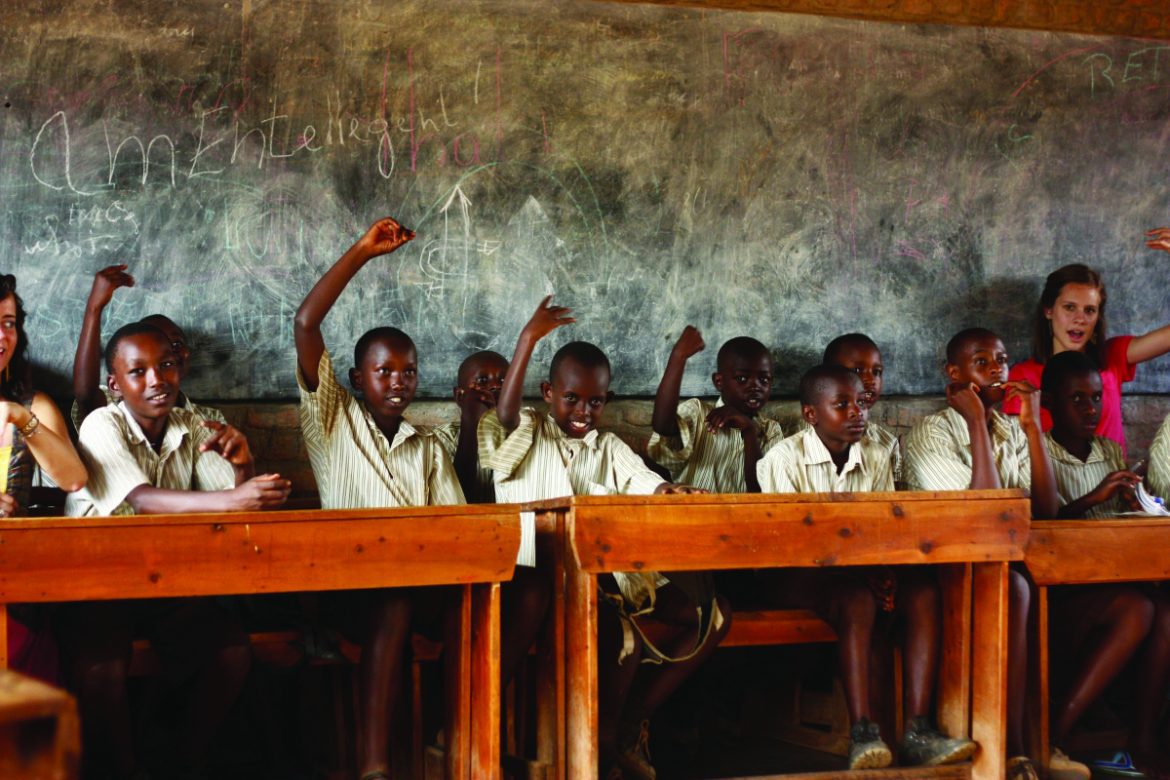Third-graders filed into the boxy Rwandan classroom of the Kicukiro elementary school and sat on wooden benches at their desks. Chalkboards covered the front and back of the classroom, and the gray clay walls held freshly-colored drawings of new English terms the children learned from the young American teachers.
AfricaReads, Inc., a nonprofit organization that teaches English, provides books and hosts professional development for teachers in Kigali, Rwanda, annually sends Harding students to teach English in a primary school three weeks at a time over the summer.
“(The children) would rub your skin with their hands to see if the white came off, and they would lick you to see if you tasted different,” senior Tandy Jackson, who worked with AfricaReads in 2014, said. “At break you would just be attacked by children — in the classroom, they would just watch you because you were white and interesting.”
The program was founded in 2008 by Ken Stamatis, assistant professor of education and AfricaReads board member. Stamatis consulted with the Rwandan minister of education, who was seeking help for Rwanda’s education system after its English reform in response to the 1994 genocide.
“Literacy is empowering: if you can’t read or write, you’re shackled,” Stamatis said. “I’m a firm believer that ensuring people are literate and creating instruction that helps people become more literate and (better read) a language further empowers them.”
Adam Baker, assistant professor of education and executive director of AfricaReads, said Rwanda is an ideal country to teach about education because both teachers and students there are dedicated to learning.
“We’ve seen the transformation in America that books and English and teaching can have on kids, and there’s a thirst and desire in Rwanda that hasn’t been quenched for many, many years,” Baker said. “We’ve decided that if there’s a country in Africa that’s going to make it, it’s Rwanda, because they are open and they’re willing and they are ready right now, so it’s fertile ground.”
Junior Logan Beasley, an early childhood education major, participated in the program in 2014 and said working in Rwanda helped her to practice being in front of students.
“I was just so amazed at how well I was actually able to think on my toes, because that was something I was scared about,” Beasley said. “It made me realize (I can teach without materials), (and) that kind of boosted my self-confidence a little bit.”
Jackson said the Harding students used songs, club chants and student participation to teach the children English vocabulary.
“They like to try to get you to dance, and they like to get you to sing,” Jackson said. “Kids are the same everywhere. They like to run, laugh and just play and be goofy, and that was cool to see.”
According to Baker, approximately 80-100 Rwandan teachers attend professional development days hosted by AfricaReads. He said teachers have continued to implement instruction techniques learned from AfricaReads to teach their students.
“Students are kind of onsite professional development teachers,” Baker said. “(The schools) have everything they need except for this seed, which is the books and the good teaching, and the knowledge for the teachers to spread to their kids.”
AfricaReads is starting a “1,000x5x2 initiative,” which aims for 1,000 people to donate $5 a month for two years. Baker said the organization’s goal is to hire and train native Rwandans to maintain libraries, provide professional development and start year-long English clubs in the schools.
“We really feel like God has just kind of put all the pieces in place,” Baker said. “He’s fertilized the ground, and now we’re just providing resources and really, really good things come through that.”
For more information on AfricaReads, Inc., visit africareadsnow.com.
